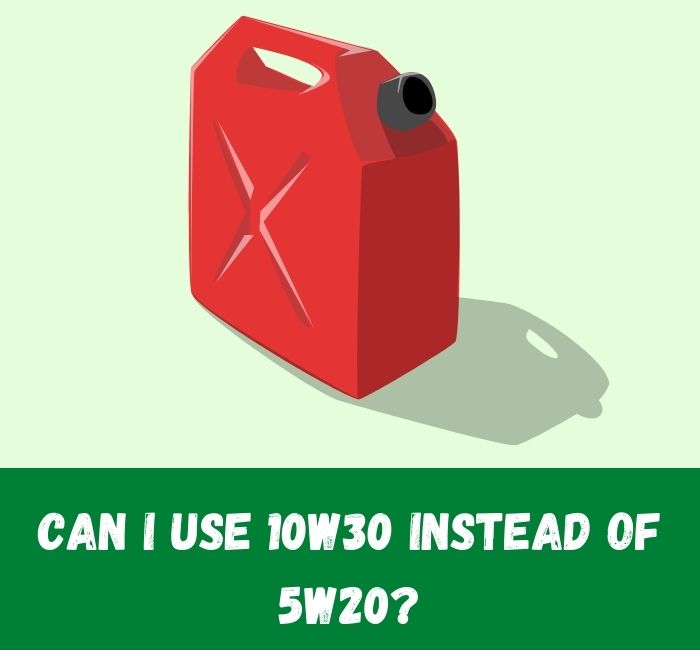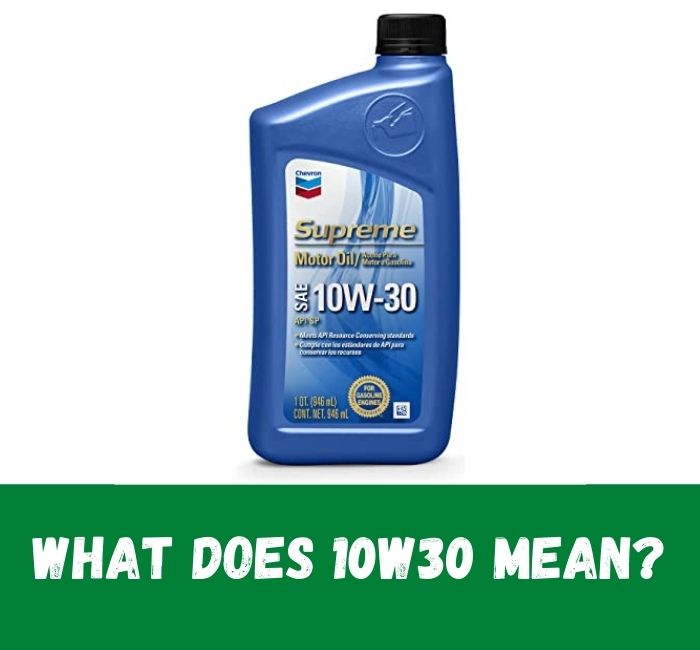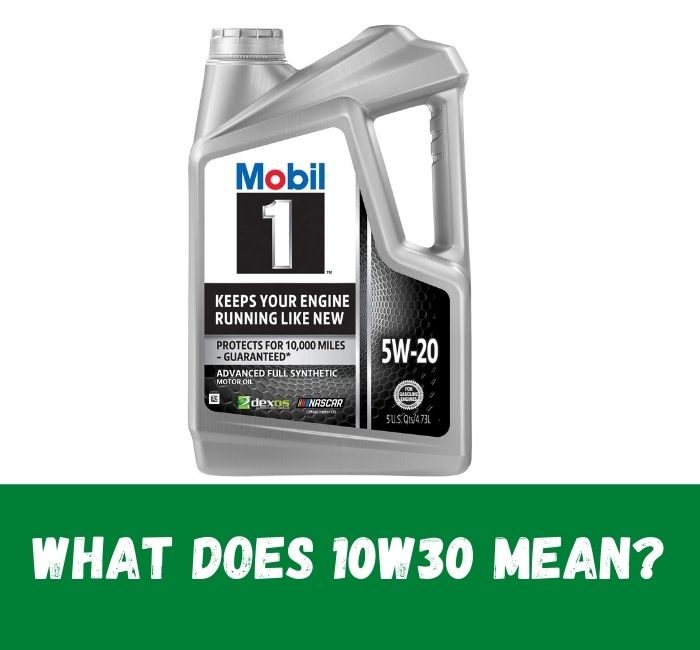This is the most crucial question for those who need to choose engine oils for their vehicles. The numbers 10w30 or 5w20 refer to the viscosity of engine oils. The factor “viscosity” is very important which defines the engine oil’s capability. Here is the question that arises. Can I use 10w30 instead of 5w20?

You can get terrible mileage after using this 10w30 for some vehicles. It can shorten your engine life in most cases. However, this will work much well for some sort of vehicle. Mainly 10w30 is thicker than 5w20. Therefore, you can choose the suitable oil according to the engine quality.
You have to choose the engine oil accordion to your engine type and also the season. 5w30 engine oil is better for cold temperatures as it can move faster.
Let’s Know About Oil Viscosity
Engine oil is the factor that indicates the flow of the oil in the engine. Not all the engines work properly with the same oil flow. Actually, viscosity helps to understand the thickness of oil and helps you to decide on the perfect oil.
Engine oil can seal the gaps between piston and cylinder when protecting the engine parts from acid, sludge water, and rust. Therefore choosing the oil based on viscosity is very important. Oil viscosity is a crucial part of engine oil discussion. Thinner oil’s viscosity is lower than the thicker oils. That means the flow of thinner oils is more in low temperatures.
Basically, the letter ‘W’ in the oil viscosity number refers to winter which means the viscosity at zero degrees Fahrenheit temperature, and the second portion of the number refers to the viscosity at 100-degree temperature.
Read on to know detailed information about what 10w30 and 5w20 stand for and oil viscosity.
What does 10w30 mean?

A 10w30 is multi-grade engine oil suitable for heavy-duty engines. Therefore, it can resist high temperatures without lowering the Engine’s performance for an expanded period. The 30-grade viscosities imply high temperatures and the winter viscosity is 10. At low temperatures, this oil maintains common viscosity means that while the environment is cold, it is thin.
What does 5w20 mean?

The oil having 5w20 viscosity is ideal for automobiles. At low temperatures, this multi-grade engine oil indicates a five viscosity grade while the high-temperature viscosity is 20 for this oil.
The Difference between 10w30 and 5w20
Before we answer the question- can I use 10w30 instead of 5w20, we are here mentioning the differences between them to determine their possible changes. Both oils are similar but different factors are made by viscosity. 10w30 and 5w20 oils provide outstanding performance in high and low temperatures. Here is a proper discussion of the variations between this both oils:
Difference In Meaning
The letters 10w30 and 5w20 “w” stand for winter. The reason for their low viscosity, they come with an extensive flowing resistance. Nonetheless, 5w20 motor oil is remarkably thinner if you want to compare. That’s why; it can offer the ultimate protection for the interior engine part from the 10w30.
Ideal Use
Make sure where you want to use your vehicle before choosing any motor oil. Although in both cases they are multi-grade, 5w20 is thinner and utilized instead of low-temperature area. As a result, it can perform better in cold weather than 10w30. Moreover, this 10w30 flows more in hot summer.
Performance
Adequately, 10w30 and 5w20 contain the same SAE ratings means they can perform similarly at high temperatures. And, 30 numbers refer to the oil viscosity suitable for high temperatures like before. Basically, 10w30 will be thick in winter, but 5w20 works better in this environment.
Lubrication
In terms of lubrication, 5w20 is the best from 10w30. Notably, for light-duty diesel and petrol engines, even private vehicles, this 5w20 is suitable. In contrast, 10w30 performs better in heavy loads and commercial vehicles.
Can I Use 10w30 Instead of 5w20?
Now turn back to our main question. It depends on the car type because all oil comes for a particular purpose. For old model vehicles using 10w30 rather than 5w20 is best. This 10w30 helps your engine seal against wear that happens with old age. On the contrary, using thinner 5w20 oil is the best idea if your car can work at lower temperatures. Remember that don’t drive your car too much in cold temperatures.
10w30 usually is thicker, and with sealing ability, it can protect your old Engine. On the other hand, 5w20 multi-grade oil is thinner and best to quickly start at lower temperatures. And, at lower temperatures, 10w30 oil will be tiny thicker, and in high temperatures, it can protect the Engine like 5w30. To get more exact information about it, please, read below.
What about Mixing 10w30 and 5w20
People also ask- Can I Mix 10W30 And 5W20? Generally, if you mix two oils with different viscosity, they will not create any problem in your Engine. However, blending oils means it can develop engine performance and its mythology. The reason is that their additives come here for many reasons.
Regardless of which oil is best for your vehicle, combining bath oil isn’t harmful to your Engine irrespective of a car manufacturer. Subsequently, to keep your engine parts lubricated, 5w20 engine oil flows easily in cold and low temperatures.
In comparison, 10w30 engine oil flows in these low and cold temperatures. But this oil flowing speed can be lower than 5w20. Ultimately, we can understand that you can mix this oil in your Engine.
Final Words
Finally, 10w30 is multi-graded thicker engine oil, and with the sealing compatibility, it can protect your older Engine. Hence, 5w20 is thinner and best for quick starts in low temperatures. Most importantly, to secure your vehicle from damages, it’s best to apply the recommended oil by the manufacturers.
And this is the article where you can get the proper answer: can I use 10w30 instead of 5w20? We hope you can now realize and give the correct answers if someone asks these questions.
References:
